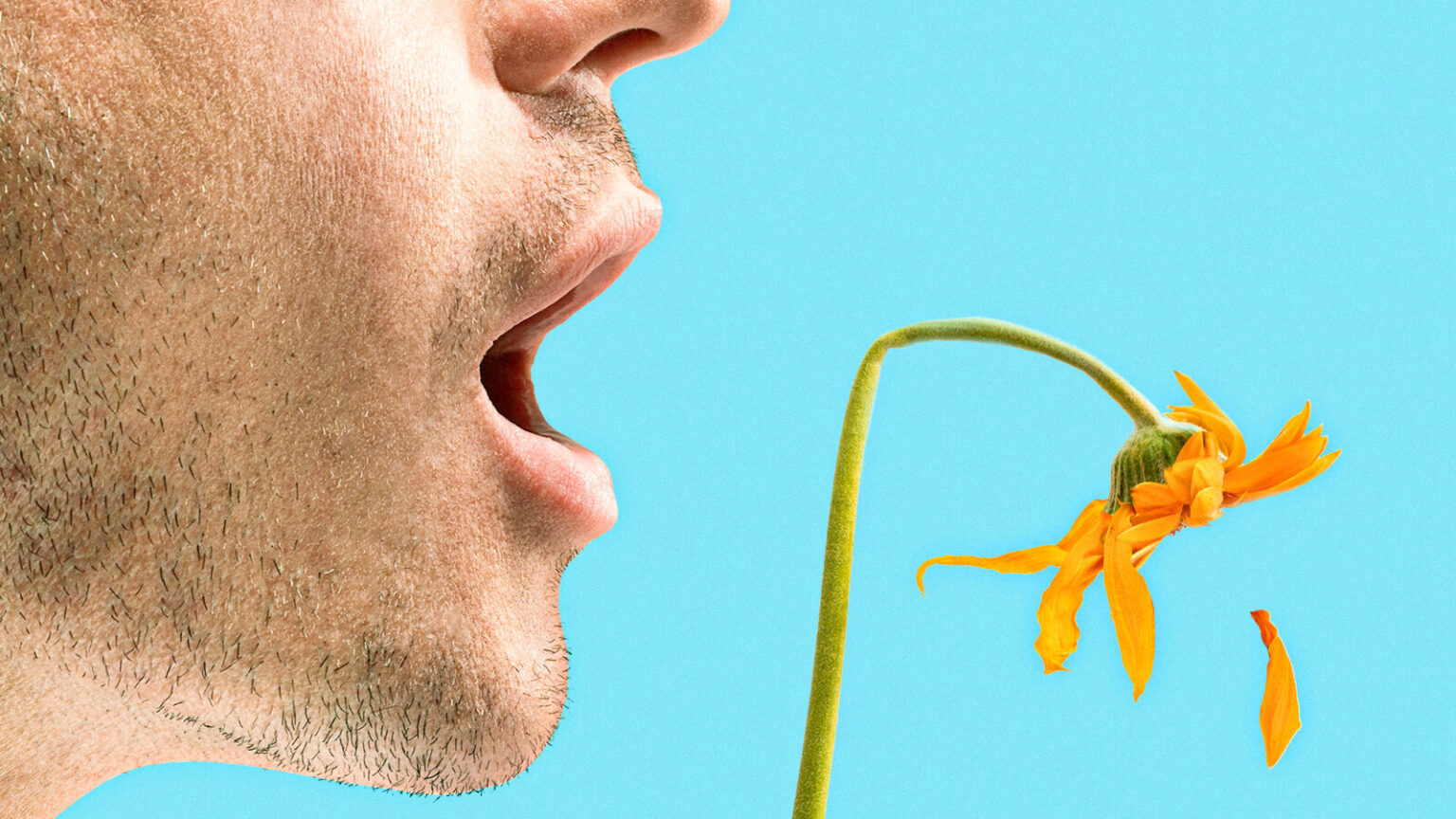Morning breath is the one thing on this planet that, at first glance, makes absolutely no sense. How could the routine act of taking breaths in and out while sleeping for eight hours produce such a significant change in mouth aroma?
The short answer is “Reduced Saliva Function,” a fancy word I came up with to describe the fact that when we sleep, our mouth produces significantly less saliva than when we are awake. Saliva is important for removing the bacteria that we naturally produce in our mouths, but when there isn’t enough of it, the bacteria accumulate and gives us the morning breath.
Even if you’re not particularly interested in learning how to have fresh morning breath, keep reading for the sake of everyone you need to speak to after waking up.
1. Don’t Eat Garlic or Onions
Yes, it is annoying if you enjoy eating any form of food because most Savoury recipes have garlic and/or onions. The strong sulphur compounds in both foods are taken into the bloodstream and released when you exhale, so if you value having fresh breath, you should at least try to avoid them. Because of this, brushing your teeth or chewing gum won’t get rid of the odor; they’ll merely partially disguise it.
2. Don’t Skip a Brushing Session Before Bed
You know should brush twice a day, according to your dentist? While we all know that brushing our teeth in the morning leaves our mouths feeling minty fresh for the day, brushing your teeth in the evening serves a variety of purposes. If you don’t remove the leftover food from your mouth before bed, the bacteria that causes foul breath at night will get a head start and will transform your breath into a toxic gas before dawn.
3. Don’t Drink Coffee or Alcohol
I realize that having fresh breath is truly starting to undermine everything enjoyable about life. Both coffee and alcohol have a drying impact on the mouth, which lessens salivation and makes the environment ideal for lingering and growing aromatic bacteria. It might be best to end that one-night stand at 4 am before you wake up next to them in the early afternoon because a Friday night alcohol binge has the power to repel everyone with its morning breath.
4. Don’t Use Mouthwash After Every Brush
One of the tools in the oral hygiene toolbox is mouthwash, which has two edges. Sure, it gives you minty breath, but it also dries out your mouth (particularly if it contains alcohol), and as we all know, it’s not helpful for fighting off germs that gives us foul breath. It’s okay to use it in the morning because our saliva can immediately remove that dryness but using it at night will only keep your breath fresh for an hour and then speed up the growth of the bacteria.
5. Don’t Sleep with Your Mouth Open
We all have our personal methods of sleeping, so this one is a little trickier to modify yourself, but it truly helps. While you are sleeping, your mouth is being rapidly inflated and deflated, which causes dryness and, like a hair drier, promotes the growth of bacteria. When you breathe via your nose, the air bypasses your mouth, and the little saliva that is present has a better chance of removing the bacteria.
6. Try Oil Pulling
Oil pulling may not be the ideal choice for the eager ones among you, so I recommend “try” rather than “do.” The art of this fresh breath technique, which dates back almost 3,000 years, is not difficult. Swish a teaspoon of oil around your mouth for 20 minutes, yes, 20 minutes. Coconut oil is suggested, although sesame and sunflower oil can work. According to studies, when your mouth’s germs come into touch with oil, they stick to it and are subsequently eliminated when you spit the oil out.
7. Brush Your Tongue
Yes, it appears that this clever notion wasn’t only thought up by toothbrush makers to sell us their newest novelties. The tongue is a breeding ground for the bacteria that produces foul breath, much like your teeth (and actually your entire mouth), so if you don’t brush it, it will continue to grow day and night. The good news is that a conventional toothbrush will perform just fine; however, be careful not to brush too forcefully since this could harm your taste receptors.
8. Smell Your Floss
Okay, I know, it’s gross. But a great way to determine whether you have terrible breath yourself is to smell your floss (after you’ve used it, of course). According to this method, developed by dentist John Woodall, DDS, if your floss smells awful or has blood on it, your mouth must be smelling horrible. If so, proceed through this list until your floss smells as fresh as someone with gorgeous mint breath.
9. Drink Lots of Water
Water is the ideal mouthwash for use while traveling. The bacteria we’ve come to despise so ferociously on this list can be flushed away by either drinking it straight down or swirling it about in your mouth and spitting it out (not advised in most public and social situations). Water consumption also promotes salivation, which, as we all know, is your body’s most effective natural cleaner and dissolves odor-causing chemicals in food and beverages.
10. Chew Sugarless Gum
Gum is beneficial for the mouth in two ways: first, it helps remove leftover food and dead cells from the teeth, gums, and tongue; second, it usually contains a delicious flavor that makes your breath smell great. (mint being the most effective). Sugarless gum eliminates the negative effects of having sugar erode your teeth and chewing it long after the flavor has worn off encourages saliva production in your mouth.




